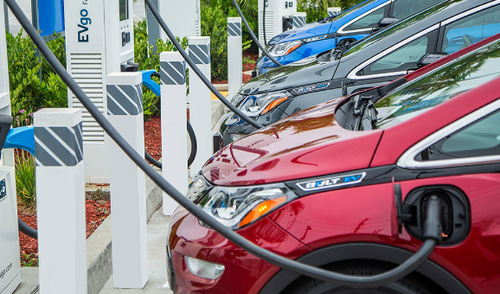Most international reports yesterday said that over 100 were killed, with still others like Fox News citing a high figure of 200 dead from the explosions that ripped through an event marking the four year anniversary since Qasem Soleimani's death in Kerman city in the country's south. On Thursday a revised figure is being widely reported of at least 84 people killed, more than 280 wounded. Despite state sources revising the casualty count downward, it was still among the deadliest single terror attacks in the Islamic Republic's history.
Iranian leaders are vowing swift revenge, with Interior Minister Ahmad Vahidi telling state television, "The perpetrators of this terrorist attack will be caught by the powerful hand of our security and intelligence organizations and will receive a strong slap, both perpetrators and supporters."
Like other prior top-level statements from Tehran in the immediate aftermath, Iran has stopped short of officially seeking to blame Israel or the US. However, other Iranian officials still pointed the finger at Tel Aviv and Washington as is typical, given Israel has in the past conducted covert assassinations of nuclear scientists.
Many observers are pointing out that it doesn't fit the pattern of an Israeli covert sponsored attack, given the attacks were likely carried out by a pair of suicide bombers who detonated themselves within large crowds. The Associated Press details:
The IRNA report quoted the official as saying that surveillance footage from the route to the commemoration at Kerman’s Matryrs Cemetery clearly showed a male suicide bomber detonating explosives. The official said the second blast “probably” came from another suicide bomber, though it hadn’t been determined beyond doubt.
Such a tactic is more typical of Saudi/Wahabi/Sunni-style al-Qaeda or ISIS or Jundallah attacks, and these groups have long had inroads in border regions of Iran among the non-Shia minority in the country. On Thursday, Reuters is reporting that ISIS has taken responsibility:
ISLAMIC STATE CLAIMS RESPONSIBILITY FOR IRAN ATTACKS: REUTERS
Meanwhile, The Wall Street Journal has cited analysts to say Israel's involvement is doubtful in this case:
People familiar with Israeli operations say the country told allies that it wasn’t involved with the explosions. They said the style of the bombing doesn’t fit the pattern of alleged Israeli attacks, which have usually been more precise targeting of individuals or infrastructure connected to Iran’s security forces.
The characteristics of Wednesday’s attack in Iran, including the high number of civilian casualties, don’t match the pattern of previous Israeli targeted killings, which tend to avoid large-scale surrounding damage, said Shlomo Mofaz, a former senior official in Israeli military intelligence.
The source additionally said that "When the Iranians want to point a finger at Israel and know it is Israel it [the accusations] come in a different tone." But important to note is that the WSJ is quoting a "former senior official" who served in "Israeli military intelligence" to say... don't look at Israel.
Others have remained skeptical, and highlighted the likely role of the MEK in the Kerman attack...
The Iranian outlawed Mujahadin-e Khalq (MEK) dissident group has long had support from US and European political leaders, despite having been known for a history of covert assassination campaigns targeting officials of the Islamic Republic. It's widely believed that Israeli intelligence also utilizes MEK assassins in brazen sabotage and assassination operations, chiefly aimed at degrading Iran's nuclear program.
However, while MEK has long been known for brazen assassinations in crowded areas, it typically employs tactics like drive-by motorcycle killings, and is not well-known for suicide bombings.
Given that now there's been an Islamic State statement of responsibility, the West is likely to consider it a 'closed case', but Tehran leaders will still be suspicious, given they tend to see ISIS as ultimately a Saudi-Israeli backed project to begin with.
